Meet the Team
Curriculum & Instruction
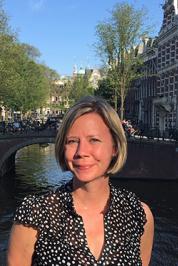
Elissa Auerbach, PhD
Education
- Ph.D. in Art History, University of Kansas
- M.A. in Art History, University of Kansas, (with honors)
- B.S. in Visual Communications, Towson University
Biography
Elissa Auerbach received her Ph.D. in seventeenth-century Dutch and Flemish art from the University of Kansas in 2009 and began teaching at Georgia College in 2006. Her research examines the depiction of the Virgin Mary as a traditional Roman Catholic theme in early modern Dutch visual culture and related developments in devotional practices, science, and domestic conduct after the Reformation in the Netherlands. Her current research focuses on the phenomenon of spiritual pilgrimage to illegal places of Catholic worship in post-Reformation Dutch altarpieces, prints, illustrated books, and maps.
Recent publications have studied the domesticated Virgin Mary in scenes of the Holy Family in early modern Netherlandish visual culture; pilgrimage and the liminal landscape in the Dutch Republic; Marian Piety in post-iconoclasm Haarlem in Hendrick Goltzius’s print series, The Life of the Virgin; and Cartesianism in Rembrandt’s print, The Death of the Virgin.
Courses taught include Northern and Italian Renaissance art, Baroque art, Christian Art and Iconography, the History of Photography, Writing about Art, Art and Ideas, The Ancient and Medieval Worlds, and from the Renaissance to the Modern World. For GC, she has also directed and taught on faculty-led summer study abroad programs in Amsterdam, Paris, and Rome.
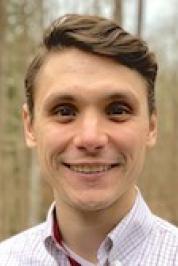
Dominic DeSantis
Education
Ph.D. Ecology & Evolutionary Biology, University of Texas at El Paso
Research
Herpetology, Vertebrate Zoology, Conservation Biology
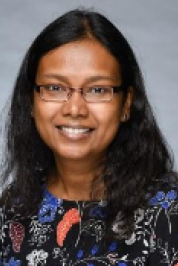
Wathsala Medawala
Education
Ph.D., Chemistry, Michigan State University
Research
Protein-Ligand Binding
Cancer Research
Protein-Metal Interactions
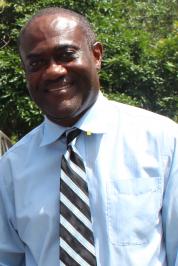
Bill Burke
Education
M.A., Journalism and Public Affairs, American University
Research
The new faces of journalism; how politics has remade journalism
Teaching
Media Law & Ethics, Professional Media Writing , Broadcast Journalism

Education
Ph.D, Folklore, Indiana University
Biography
Dr. Mary Magoulick teaches folklore (including courses on myths and fairy tales), Native American literature, popular culture and women's and gender studies, all with multicultural focus. She has published in The Journal of American Folklore, The Journal of Folklore Research, The Journal of Popular Culture, and more. Her book, The Goddess Myth in Contemporary Literature and Popular Culture: A Feminist Critique was published by the University Press of Mississippi in 2022. She has traveled or lived in over 30 countries so far, including time in the Peace Corps in Senegal and in Croatia on a Fulbright. She focuses on culturally-based approaches to studying human artistic expressions.
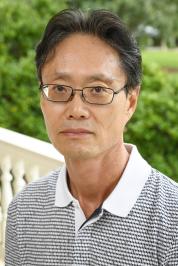
Min Su Kim, Ph.D.
Research
- State and Local Government Financial Management
- Public Finance and Budgeting
- Policy and Program Evaluation
- Quantitative Research Methods
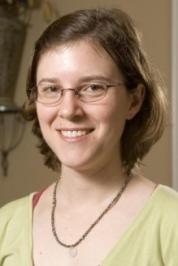
Areas of Study
Historical, Cultural, and Ethnic Geography
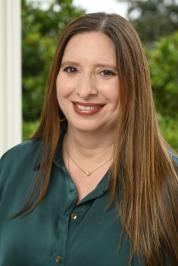
Education
PhD, Mathematics Education, University of Georgia
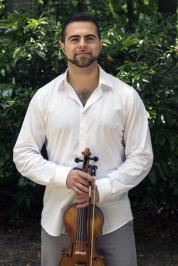
Dr. Bryan Emmon Hall
Biography
Hailed by Cincinnati City Beat as “extraordinarily evocative” for his performances and reviewed by the Salisbury Post as playing with “great beauty and extraordinary brilliance,” for his Sibelius Violin Concerto, Dr. Bryan Emmon Hall has enjoyed success as both a performer and teacher. Bryan has performed in such venues as the Kennedy Center in Washington D.C., the Palace of Fine Arts in San Francisco, and the Forbidden City Concert Hall in Beijing, China. He has also appeared as a soloist with the Fairbanks Symphony Orchestra, Shasta Symphony Orchestra, Balcones Symphony, Salisbury Symphony Orchestra, Winston-Salem Piedmont Triad Symphony Orchestra, Austin Civic Orchestra, Central Texas Orchestra, Juneau String Ensemble, Cincinnati Accent Festival Orchestra, and many others. Dr. Hall has performed extensively in the United States and abroad as a chamber, orchestra, violinist, violist, and conductor.
Most recently Bryan Hall has appeared on stage for guest performances and/or masterclasses at Seattle University, Denison University, Idaho State University, Seattle Pacific University, University of North Carolina School of the Arts, Chatter Chamber Series in New Mexico, University of Houston, Truman State University, Western Washington University, Colburn Performing Arts School, Stanford University, South by Southwest Festival in Austin, University of California at Santa Barbara, Gumi, Korea; Buenos Aires, Argentina; Beirut, Lebanon; Erbil, Iraq; Bali, Indonesia; and Pörtschach, Austria. Bryan Hall has performed in the sections of leading professional orchestras including the Austin Symphony Orchestra, Austin Lyric Opera, Round Rock Symphony, Juneau Symphony Orchestra, Charlotte Symphony Orchestra, Boise Baroque, and the Utah Symphony Orchestra.
Bryan attended the University of North Carolina School of the Arts during high school where he studied with Nicholas Mann, Joseph Genualdi, and Kevin Lawrence. He holds a Bachelor of Music degree in Performance from the University of Cincinnati College-Conservatory of Music where he studied with Kurt Sassmannshaus. He completed both his Masters and Doctoral degrees at The University of Texas at Austin, Butler School of Music, under the tutelage of Brian Lewis. Other significant teachers at Texas include David Kim and Anne Epperson. Bryan Hall has won numerous awards including Starling Scholarship at UT and CCM, Baur Scholarship Competition, and the Young Texas Rising Stars Competition.
Dr. Hall is a deeply committed teacher who began teaching privately while still in high school. In Cincinnati, he taught violin and school orchestra for numerous elementary, middle, and high schools in the area where he started over 200 new violin students. Bryan has a passion for teaching people of all ages and skill levels. Bryan Hall held the position of Violin Teaching Assistant for the totality of his graduate studies at The University of Texas at Austin. In addition to his collegiate teaching duties, he also taught in the famous UT Austin String Project at the pre-college level. Dr. Hall has been on faculty at numerous summer festivals including Fairbanks Summer Arts Festival (where he is artistic director), Seattle-Japan Suzuki Institute, 6th Asian International Suzuki Institute in Bali Indonesia, Honolulu Suzuki Institute, Fairbanks Suzuki Institute, Louisville Suzuki Institute, UAF Summer Academy, UT Austin Longhorn Band Camp, Brian Lewis Young Artist Program in Kansas, American Voices YES Academy (Youth Excellence on Stage) held in Beirut, Lebanon and Erbil, Kurdistan, University of San Jose, Costa Rica Masterclass Series, and the Seattle Young Artist Coleman/ James studio. Bryan also enjoys playing different styles of music in his Persian Classical/ Independent Rock Band called Tehranosaurus that actively tours around the United States and abroad.
Dr. Hall served on the faculty of The University of Alaska Fairbanks as the violin/ viola professor and pedagogy coordinator. He was Concertmaster of the Fairbanks Symphony Orchestra, conductor of the Northern Lights Symphony Orchestra, and conductor of the Fairbanks Youth Symphony Orchestra. He was visiting Concertmaster of the Juneau Symphony Orchestra 2018-2019. Dr. Hall was president of the Alaska ASTA Chapter 2015-2016. His articles are published in publications like String Magazine. Bryan Hall is currently the Assistant Professor of Upper Strings and Orchestra Conductor at Georgia College and State University.

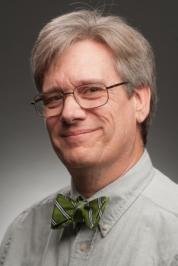
Education & Bio
B.S., University of Georgia
M.A.,Ph.D., University of Kentucky
Research
Comparative psychology using House crickets
Perception and learning paradigms with pharmacological and environmental manipulations
Behavioral research studying tardigrades
Teaching
PSYC 2300 - Science of the Mind
PSYC 2800 - Research Methods
PSYC 3300 - Behavioral Neuroscience
PSYC 4300 - How the Brain Tastes Wine (and more)
PSYC 4920 - Capstone: How Brains Taste Food

Beate Czogalla
Education
MFA, Theatre Design, Virginia Tech
Biography
Beate M. Czogalla is delighted to be a part of the Department of Theatre at Georgia College as the Assistant Professor in Theatre Design since the Fall of 2000. She has a BA and MA degree in Theatre from Giessen University (Germany) and an MFA degree in Scenography and Lighting Design from Virginia Tech. Her credits at GC include A Midsummer Night's Dream, The Glass Menagerie, The Wild Duck, Quilters, The Beggar's Opera, On The Verge, Our Town, Julius Caesar, The Dining Room, You're A Good Man, Charlie Brown, The Taming Of The Shrew, An Evening of Pinter, Pippin and The Illusion.
Ms. Czogalla has designed internationally with credits at theatres in Giessen, Frankfurt, Bad Hersfeld and Stuttgart, Germany; Wroclaw and Warsaw, Poland; Lige, Belgium; Chepstow, Wales, Great Britain; Peterborough, Ontario, Canada, and in the United States, and she is a founding member of the monumental Canadian outdoor theatre production, And Wolf Shall Inherit The Moon, mounted in Haliburton, Ontario every August. Since the Fall of 2000 she has worked as a Scenographer and Lighting Designer at The Warehouse Theatre in Greenville, South Carolina, and at 7 Stages in Atlanta, and since the summer of 2002 she has designed three shows per year for the Pennsylvania Shakespeare Festival in Allentown/ Center Valley, Pennsylvania.
She was the Resident Lighting Designer for the New Harmony Theatre from 1990 until 1997. Prior to that she worked at Actors Theatre in Louisville, Kentucky, The Road Company in Johnson City, Tennessee, and Playhouse 460 and the Studio Theatre in Blacksburg, Virginia. She has done concert and architectural lighting design and consulting for a variety of clients and has served as the Lighting Supervisor for the Lincoln Amphitheatre at Lincoln State Park, Indiana, from 1995 until 2000. As an active member of NASA's Teacher in Space/ Space Education Program she serves as a community volunteer conducting workshops for children and adults of all ages, and in late 2000 she was appointed as a Solar System Ambassador by JPL (Jet Propulsion Laboratory/ NASA), a position she plans to hold for many more years. She is also a certified Advanced Open Water Diver and a passionate hiker and kite builder.
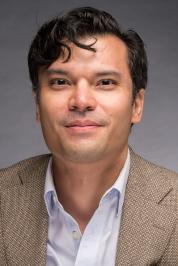
Aaron Castroverde, Ph. D.
Education
Ph.D. Duke University
M.A. Middlebury College
B.A. University of Georgia
Areas of Expertise
Research: Continental Philosophy, Literary Theory, Concepts of World Literature, Spanish and Philippine Literature
Languages Spoken: English, Spanish, French, Portuguese, Tagalog
Regional Areas of Expertise: Spain, Philippines
Favorite Part of WLC
"“Il n’y a pas de hors-texte” (“There is nothing outside the text”) – Jacques Derrida. All of my classes (from Spanish 1001 to 4000+) will explore profound the connection between language, literature, and thought. In other words, we will ask the question: how do we use language to interpret the world around us?"